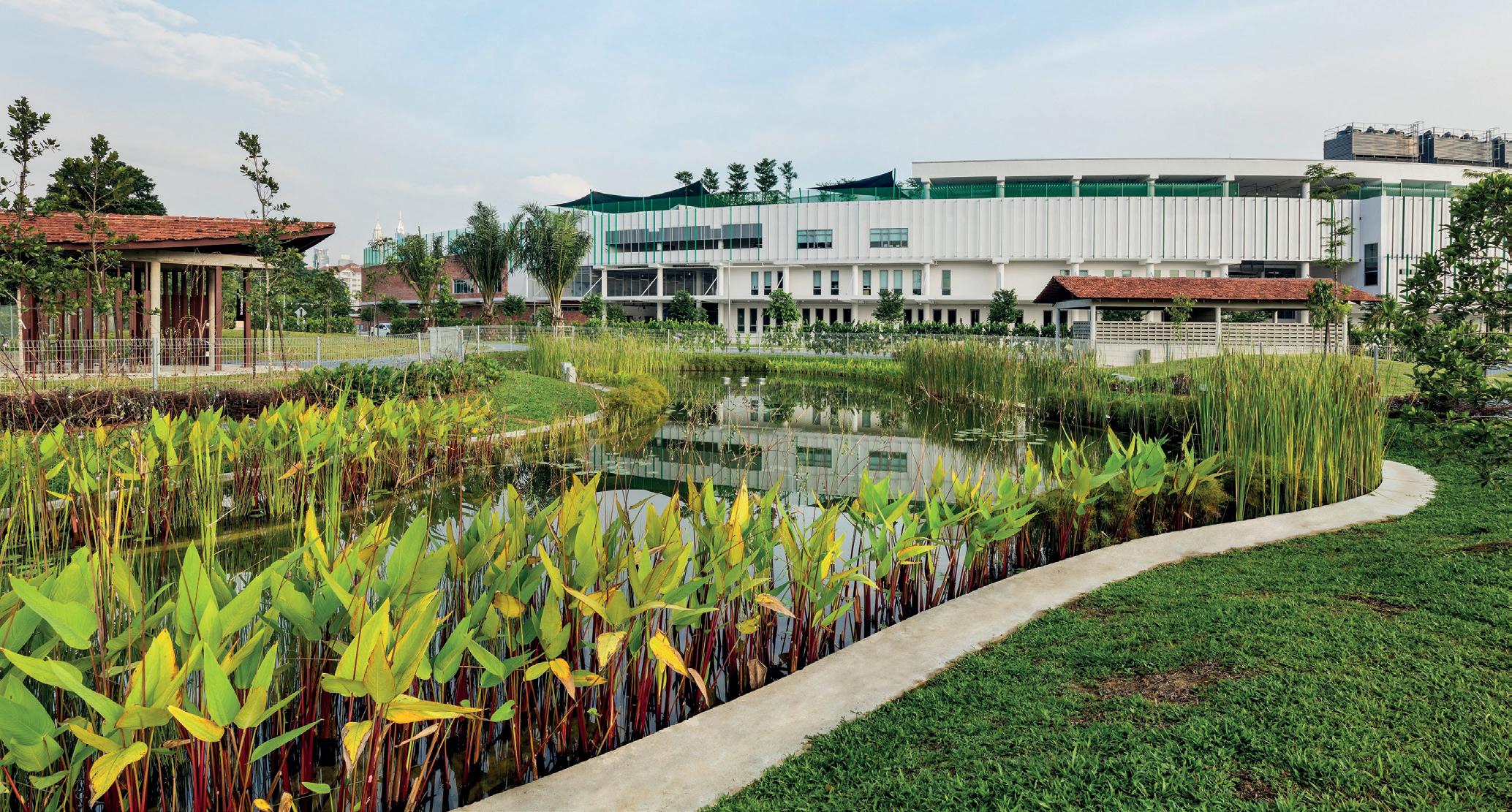
3 minute read
comment
Searching for the silver lining
Editors Mary Hayden and Jeff Thompson applaud international schools for their strength and resilience in the face of the coronavirus pandemic
Writing on a topical subject in a traditionally published book, journal or magazine is always to take a risk that – even when writing, as we are, just before the publication goes to press – the contribution will be out of date before it reaches the reader. So it is with our Comment in this issue, written in the context of unprecedented social change as coronavirus sweeps the globe, forcing social isolation and leaving devastated families, organisations and economies in its wake.
But does this (very dark) cloud have a glimmer of a silver lining? Certainly the crisis has highlighted, in addition to the worst of human nature as some have sought to capitalise on the vulnerability of others, the very best of humanity. There have been very many examples of kindness and generosity of spirit shown not only to family, friends, neighbours and colleagues but also to complete strangers, and a wider recognition and appreciation of those in the health and wellbeing services who have been on the frontline of the COVID19 battle, and in some cases have paid the highest price for their dedication.
In the context of education, one silver lining has surely been the impressive response made by international schools, amongst others, to school closures – often at very short notice – and the commitment shown to supporting students’ learning in challenging circumstances. Online courses and materials have been developed almost overnight, teachers with previously little more than a passing acquaintance with the use of technology in the classroom have developed skills undreamt of only a few months earlier, and the generosity of spirit manifested in society more widely has been exemplified by the sharing of resources, ideas and expertise between schools worldwide which had little or no previous connection. Senior Leadership Team meetings held via, for example, Skype, Zoom or Teams, have – it is rumoured – become more efficient in their use of time than previous face-to-face meetings, and educators who had previously felt at a disadvantage when interacting with their digital native students have developed levels of confidence in using apps, platforms and other features of technology that were previously shrouded in mystery. If nurses and doctors are the heroes of the medical response to COVID-19, then teachers and leaders are surely heroes of the educational response.
Three cheers then for teacher commitment, expertise and experience – and for the enormous amounts of professional development that have arisen from mutual need and support, where colleagues volunteer their expertise to facilitate the development of others. The adaptability, flexibility and goodwill shown by teachers and leaders worldwide in this current crisis must surely be cause for celebration.
Amongst the myriad unanswered questions crossing our minds as we look forward to the post-COVID-19 era is one of particular relevance in the international school context: what will the future hold for education, and indeed international education, now that technology has gatecrashed its way into what were (relatively) technology-free aspects of education? Formal learning clearly can take place, albeit with limitations in some curriculum areas, without the necessity for a classroom and formally structured school days, and the world has not stopped spinning on its axis because students are not being assessed in exam halls at desks set a fixed distance apart. Amongst all the current uncertainty, one certainty would seem to be that education in future will not be as it was pre-COVID-19.
And in looking to the future, we need to note here that, sadly, this is the last issue of International School magazine to be published by John Catt Educational. After many years as the magazine’s publisher, it has been decided by our colleagues at John Catt that it is time to move on. We expect to continue as Editors of the magazine, and are currently in discussions about alternative means of publishing future issues. In the meantime, we wish to express our gratitude to John Catt colleagues for the support and encouragement we have received during our long partnership. Please do keep sending your articles, and ideas for articles, which we will be pleased to receive via editor@is-mag.com.










